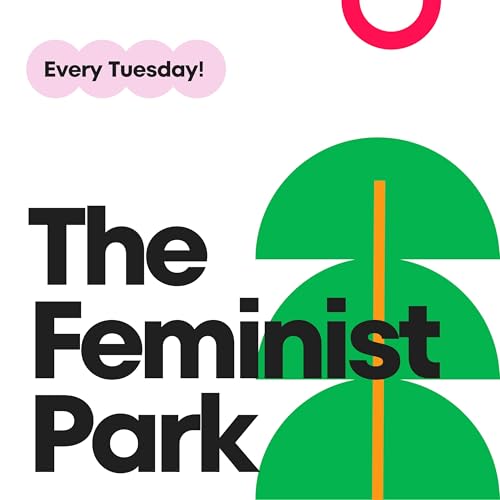
13. Why Women in Cities Matter: From Insecurity to Rights to the City
No se pudo agregar al carrito
Add to Cart failed.
Error al Agregar a Lista de Deseos.
Error al eliminar de la lista de deseos.
Error al añadir a tu biblioteca
Error al seguir el podcast
Error al dejar de seguir el podcast
-
Narrado por:
-
De:
This powerful episode delves into the profound experiences of women in cities, examining how gender shapes urban insecurities and perpetuates social inequality in urban areas. Drawing on rich empirical findings, we illustrate varying experiences of fear, safety, and the essential 'rights to the city' that women claim and deserve.
Relates to The Feminist Park Project: Provides foundational context for the Feminist Park's existence, highlighting the systemic insecurities women face and underscoring the park's role as a space that upholds and enables women's fundamental right to the city.
Source for Podcast Episode:
- Book/Paper: "Why Women in Cities Matter: From Urban Insecurity to Rights to the City" (Chapter in The Routledge Handbook of Gender and Development)
- Author: Linda Peake and Geraldine Pratt
- Intro/Outro Music: big-band-tv-show-logo-164230 Music by Anastasia Chubarova from Pixabay
Clarification of "SlutWalk" discussed in this episode:
The "SlutWalk" is identified in the sources as a significant social movement and event, primarily focused on addressing gender-based violence and women's rights within urban contexts, often with transnational implications. Here's a breakdown of what the sources indicate about SlutWalks:
• Purpose and Focus: SlutWalks were organised to protest sexual assault and victim-blaming. They aimed to address gendered violence and call for an end to state apathy towards violence against women. These events are also linked to discussions and legislative changes designed to protect lesbian, gay, bisexual, transgender, and queer (LGBTQ) Canadians from discrimination.
• Origins and Spread: The first SlutWalk in 2011 took place in Brussels another sources tates that the first SlutWalk was organised in Toronto to protest gendered violence. Regardless of the exact first location, in 2011, there were companion SlutWalks in 40 countries across the Global North and South, indicating its rapid international spread.
• Key Events and Examples: The Vancouver SlutWalk involved participants marching to protest sexual assault and victim-blaming. This event included the use of gender-neutral washrooms in the public gallery and a proclamation to end state apathy towards violence against women. The Edmonton SlutWalk in 2011 is depicted in an image (Figure 17.6 of the source).
• Legislative Impact: Discussions surrounding "SlutWalks" and "bathroom bills" were broadly associated with the amendment of the Canadian Human Rights Act. This Act was amended to include gender identity or expression as prohibited grounds for discrimination, with a second reading passing in May 2016.
• Feminist Movement and Critiques: The SlutWalk movement is described as an effective instance of transnational feminism [previous conversation, referencing Carr, L.L. (2015) in 18]. However, the "SlutWalk blueprint" has been critiqued for reinforcing white privilege, especially given its historical context. Canada, for instance, has argued that the movement reinforces white privilege.In essence, SlutWalks emerged as a prominent international social movement addressing gender-based violence, advocating for women's rights, and contributing to broader discussions around gender identity and discrimination in public spaces.



